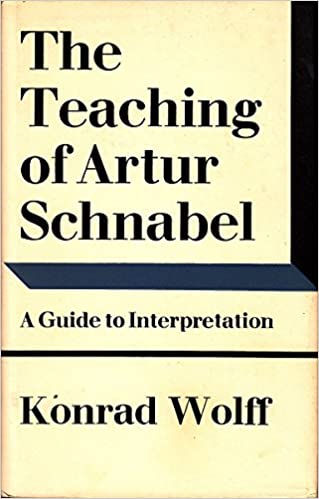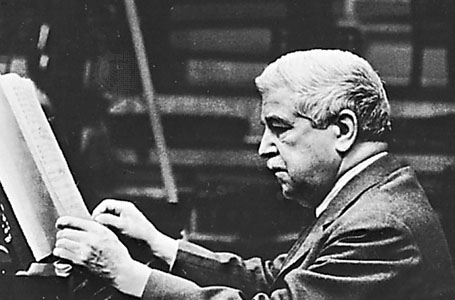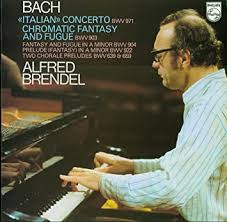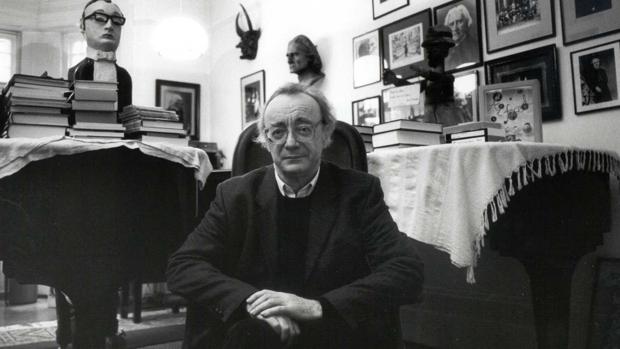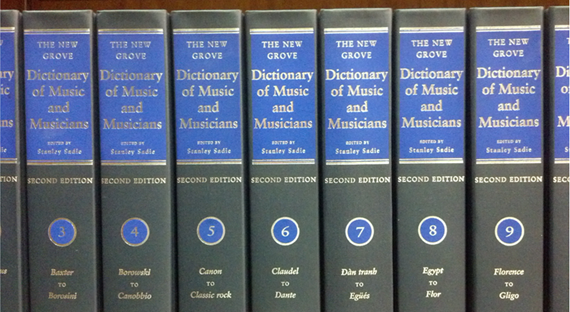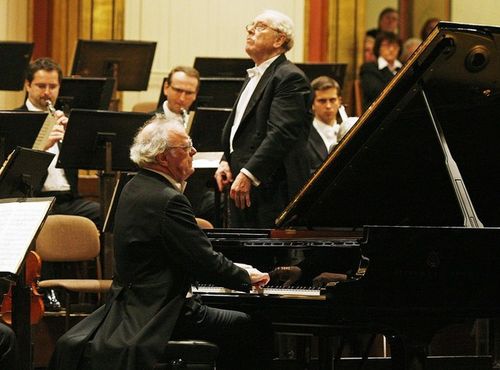
"Music, Sense and Nonsense: Collected Essays and Lectures", por Alfred Brendel.
Capítulo: “Conversations - Me, Myself and I”
open.spotify.com/playlist/2PJMD…
Capítulo: “Conversations - Me, Myself and I”
open.spotify.com/playlist/2PJMD…
Dentro de la serie de conversaciones que Alfred Brendel incluye en su libro, se encuentra una muy peculiar entre lo que parece ser el “superyó”, el “yo” y el “ello” de Alfred Brendel, o AB1, AB2 y AB3 como él los bautiza. 





Con su característico sentido del humor, Alfred Brendel discute consigo mismo sobre lo que pasa cuando un intérprete ejecuta una obra. Pregunta AB1 a AB" qué era lo que sucedía cuando interpretaba la Sonata Op. 111 de Beethoven. “Were you moved at all?”
open.spotify.com/track/7JdDsfsJ…
open.spotify.com/track/7JdDsfsJ…
AB2 contesta: “Most certainly. I’d even go so far as to say that I levitated - though only inside myself (…) To penetrate to a heart of a work, to lose yourself with relish, to actually disappear in it - this I, and remains the loveliest things that can happen to us.” 

AB1 replica: “I leave it to you without qualms -just as long as I(…)can keep an eye you as whether things are functioning, making sure the fingers know that they are doing(…)the fact that you are creeping into the works isn’t just hollowing it out but also put something in it.” 

AB2 explica que cuando levita, no lo hace flotando sobre la obra, sino dentro de la obra. AB1 recapitula: “You levitate inwardly, I steer things from the outside (…) Didn’t we get on pretty well with each other as a circus act? The Brendel Twins - not identical, of course.” 

AB3 irrumpe: “Morning, gens! Been listening to you with some interest. Doncha know that times have changed? (…) Let’s be honest: Without us, the music is just a waste paper. Show it to them: Galvanise the composers! Shake off your chains! The force is with us! (…)Be a Dadaist!” 

“AB2: (Covers his ears).
AB1: (Pulls out an eyelash and stabs AB3 to death with it. Then scatters spinach all over him)."
Brendel concluye esta conversación con uno de sus poemas:
AB1: (Pulls out an eyelash and stabs AB3 to death with it. Then scatters spinach all over him)."
Brendel concluye esta conversación con uno de sus poemas:

"During his recent recital
I saw my celebrated colleague Fischkemper
levitate above the piano
I could hardly believe my eyes
but there he hovered
while the piano keys
all by themselves
I saw my celebrated colleague Fischkemper
levitate above the piano
I could hardly believe my eyes
but there he hovered
while the piano keys
all by themselves
went on playing the E flat trill from Op. 111
thus demonstrating
even to the staunchest skeptic
that a mystical experience
accesible to all
as being enacted
open.spotify.com/track/6hN9Dziy…
thus demonstrating
even to the staunchest skeptic
that a mystical experience
accesible to all
as being enacted
open.spotify.com/track/6hN9Dziy…
@threadreaderapp unroll
• • •
Missing some Tweet in this thread? You can try to
force a refresh



